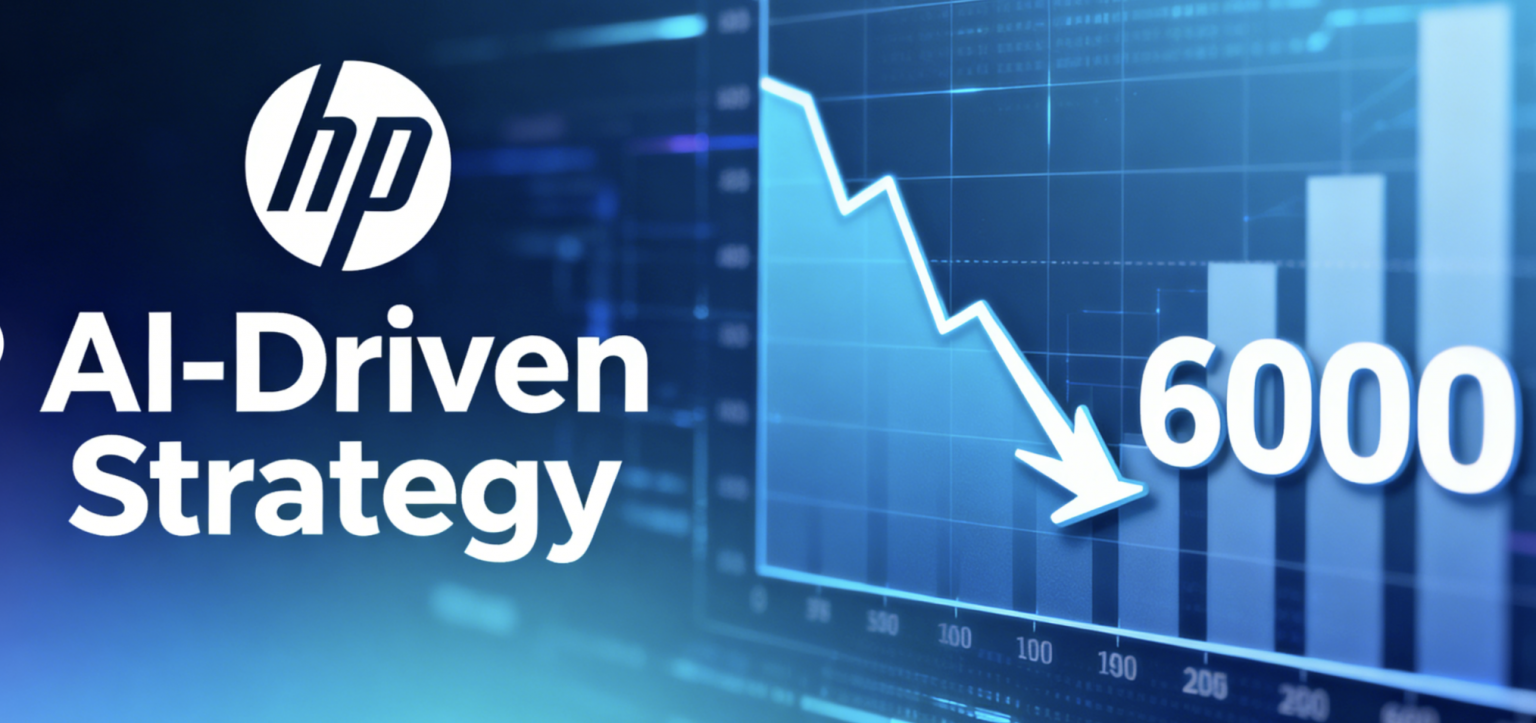- The job cuts will affect HP’s product development, internal operations, and customer support teams.
- The restructuring aims to deliver around US$1 billion in annualised cost savings by 2028, largely through AI-enabled efficiencies.
What happened: HP Inc. Announces 4,000–6,000 global job cuts as part of 2026 AI-driven restructuring
On 25 November 2025, HP Inc. announced a substantial global workforce reduction as part of a broader “Fiscal 2026 plan” to embed artificial intelligence across the company’s operations.
According to CEO Enrique Lores, between 4,000 and 6,000 jobs will be eliminated by the end of fiscal 2028, impacting teams in product development, internal operations, and customer support.
This latest round of cuts follows a smaller reduction of 1,000–2,000 employees announced in February under an earlier restructuring plan.
Industry observers note that demand for AI-enabled PCs — a cornerstone of HP’s product portfolio — is ramping up. Shipments for machines with built-in AI capabilities now account for over 30 per cent of the company’s total in the quarter ended 31 October.
At the same time, HP is grappling with headwinds such as rising memory-chip prices, driven by surging demand from data centres. That trend threatens to squeeze margins across the PC and consumer-electronics industry.
Also Read: HP wins $53M in CHIPS Act funding to expand Oregon plant
Also Read: MediaTek launches Dimensity 8400 5G chipset with GenAI features
Why it’s important
HP’s move reflects a growing trend among major technology firms: shifting from people-powered workflows to AI-driven automation and tools. While this promises efficiency gains, faster product development and lower costs — which HP cites as delivering US$1 billion in savings — it also spotlights the human cost of digital transformation.
For hundreds or even thousands of workers, this could mean job loss or redeployment, often with uncertain prospects. The fact that product-development teams — typically among the most skilled and stable — are being targeted suggests a deeper structural shift in the tech industry, where AI is no longer just a support tool but a core operating backbone.
Moreover, the announced timeline (through 2028) raises questions: will the promised savings and productivity gains materialise? Or will HP simply hollow out its workforce under the guise of AI adoption while maintaining similar output expectations? Analysts’ warnings about rising component costs and supply-chain pressures further complicate the picture, potentially offsetting the benefits of automation.
Finally, the decision underscores a broader tension faced by legacy hardware companies: balancing competitiveness in an AI-driven future with the social and ethical implications of large-scale workforce reductions.

